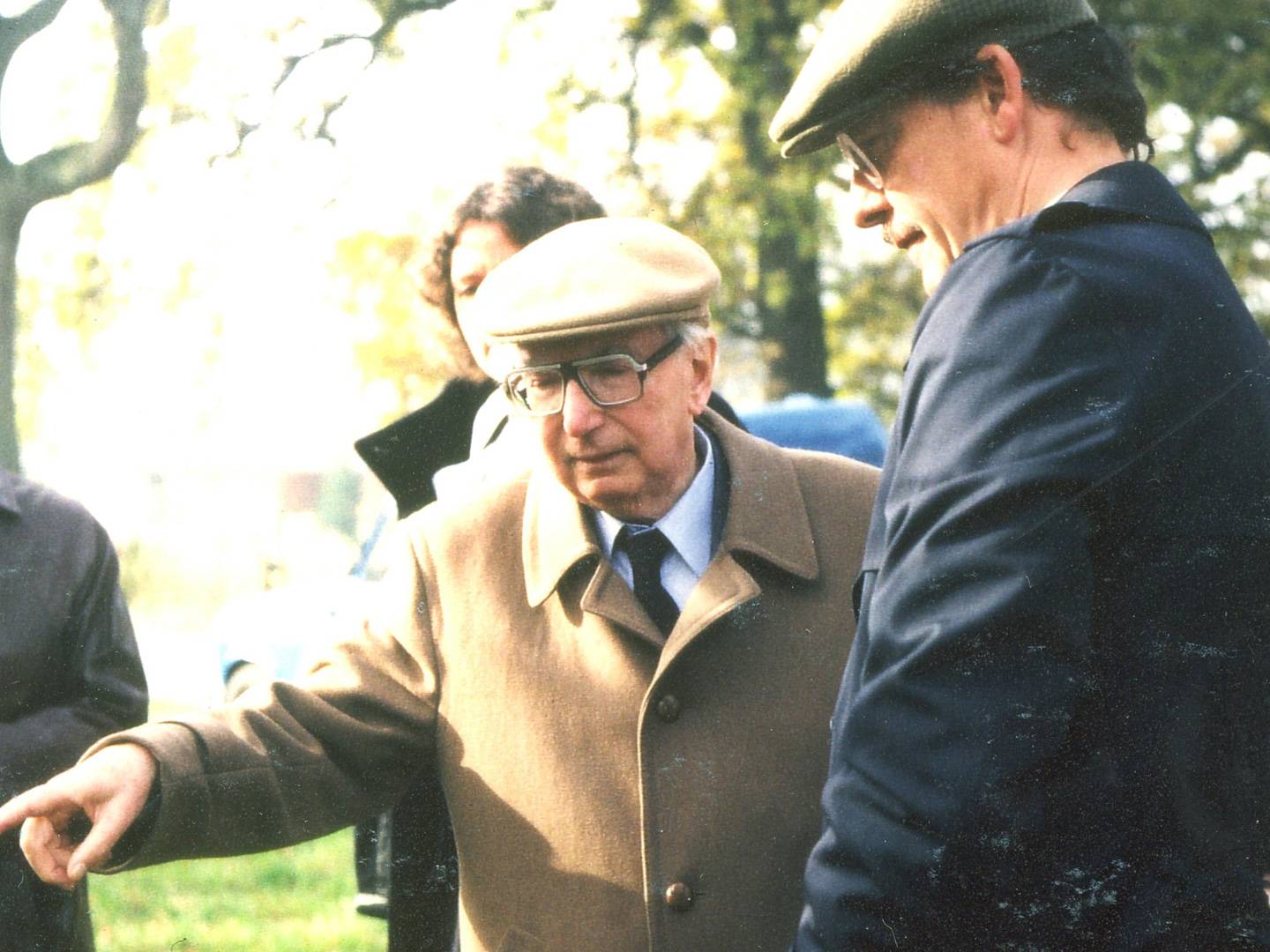Dr Viktor Emil Frankl
(born on 26 March 1905 in Vienna, died on 2 September 1997 in Vienna) Prisoner number: 119104
When I had already been transported to another Bavarian camp, to a so-called “Schonungslager” (protection camp), where I was then finally allowed to work as a doctor during a severe typhus epidemic, I sometimes had this good fortune, at least for a few minutes, of being able to retreat into a much desired solitude.
– Dr. Viktor Frankl about his time in the Kaufering VI subcamp
Viktor Emil Frankl was born on 26 March 1905. He studied medicine and obtained his doctorate in 1930. Between 1933 and 1937, he was head of a department for suicidal women as a senior physician at the Psychiatric Hospital in Vienna.
Following the “Annexation” of Austria to the National Socialist German Reich in March 1938, as a Jew, Frankl was prohibited from treating “Aryan” patients. He found new work at the neurological department of Rothschild-Spital hospital of the Jewish religious community. Some of the professional opinions that he issued to Jewish patients during this time were intended to save them from the Nazi euthanasia programme.
In September 1942, Frankl, his wife Tilly, and his parents were relocated to the Theresienstadt ghetto. His father died there in 1943, his mother and brother were murdered in the gas chamber in Auschwitz, his wife died in Bergen-Belsen concentration camp. Frankl, too, was deported to Auschwitz concentration camp in 1944, then to Kaufering III camp as well as to Kaufering VI camp in Türkheim. There, he and other prisoners were liberated by US American soldiers on 27 April 1945.
There was also a shaft with underground water supply, covered with a wooden panel. I lay down on it for a while, whenever I was not needed as a doctor in the barracks. I perched there and looked – though the obligatory vignette of the barbed wire – onto the expansive verdant and blossoming meadows and distant blue hills of the Bavarian landscape. There I sat and dreamt the dreams of my longing and sent my thoughts far away to the north and north east, where I imagined loved ones – but now only observed clouds with eerily bizarre shapes.
– Dr. Viktor Frankl about his time in the Kaufering VI subcamp
The psychologist recorded his experiences at the concentration camps in his book “…trotzdem Ja zum Leben sagen”. It was translated into 26 languages and sold over 12 million copies worldwide. Viktor Emil Frankl married again in 1947. His grave is located in the “old Jewish section” of Vienna Central Cemetery. The Viktor-Frankl Museum was opened in his honour in Vienna in March 2015.
Then I went to fetch them [medicaments] and made “visits”: from comrade to comrade, feeling their pulse, administering half a tablet of a medicine for the most severe cases, no medication at all for the most serious, since it would have been in vain for them and deprived those who could perhaps still be saved; I couldn’t do anything for the milder cases, other than provide some moral support.
– Dr. Viktor Frankl about the medical situation in the Kaufering VI subcamp


